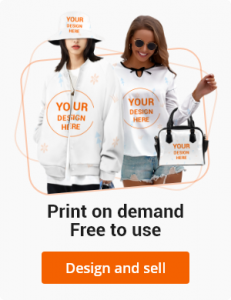You’ve probably come across claims like: ‘Start an online store with no inventory! It’s an exciting idea, but for many, it also sounds a little too good to be true. That often leads to a big, important question: Is dropshipping even legal?
Let’s get right to it: Yes, dropshipping is 100% legal (in most countries).
Dropshipping is a perfectly legal and legitimate business model. Think of it as a form of order fulfillment, used by everyone from independent entrepreneurs to huge global brands. The legality isn't about the model itself, but about how you operate your business—just like any other company out there.
So, instead of thinking of it as a shortcut, think of it as a real business that needs to be set up correctly. This guide will walk you through the main things you need to know to run your dropshipping store professionally and honestly.

Page overview:
1. Getting Official: Setting Up Your Business Entity
2. Understanding Business Taxes (It’s Not as Scary as It Sounds)
3. Selling the Right Stuff: Avoiding Copyright & Counterfeit Traps
4. Being Honest with Your Customers (It's Good Business, and It's the Law!)
Dropshipping Legality: What You Need to Know
Before we get started, check out this video that explains the key legal aspects of dropshipping, including copyrights, business licenses, taxes, consumer protection, and supplier contracts.
1. Getting Official: Setting Up Your Business Entity
Before you begin selling, it’s important to set up your business as a formal legal entity. If you just sell products as an individual, there’s no financial separation between you and your business. This is risky because if your business has a problem (like debt or a lawsuit), your personal assets—like your savings, car, or even your home—could be on the line.
Creating a formal structure builds a legal "wall" that separates your personal finances from your business finances, offering you vital protection.
The best way to do this depends entirely on where you live. Every country and state has different rules and business types.
- In the United States, forming an LLC (Limited Liability Company) is a very common choice.
- In Europe, the specifics vary by country. Common examples include the GmbH in Germany, the SARL in France, or the Private Limited Company (Ltd.) in the UK.
Finally, don't forget to check with your local government about any business licenses or permits you might need to operate legally in your area.
2. Understanding Business Taxes (It’s Not as Scary as It Sounds)
Taxes can feel intimidating, but they are a manageable and essential part of running a business. Let's break down the two main types you'll deal with in the U.S.
- Income Tax: This is the tax you pay on your business profits. Think of it like this: Sales - Expenses = Profit. You are taxed on that final profit number. This is why keeping clean, organized records of all your sales and expenses from day one is so important. Every business expense you track can lower your taxable income, which means you'll pay less in taxes.
- Sales Tax: This is a tax you collect from your customers on behalf of state and local governments. In the U.S., this is governed by a concept called "nexus." If you have a significant business connection to a state (which can be created just by selling a certain amount there), you are required to collect and pay sales tax in that state.
Since the rules vary wildly between states, this can get complicated quickly. Thankfully, major e-commerce platforms like Shopify have powerful tools that can help automate sales tax calculations and collection for you.
Our best advice? A good accountant who understands e-commerce is worth their weight in gold. They can help you get set up correctly and make sure your finances are in order from the start, saving you from major headaches down the road.
3. Selling the Right Stuff: Avoiding Copyright & Counterfeit Traps
This is a common pitfall that trips up many new sellers. It might seem harmless to sell a phone case with a popular movie character on it, but using big brand names, logos, or characters without official permission is a major red flag. This is called trademark infringement, and it’s taken very seriously.
The same goes for counterfeit goods. Selling fakes is simply illegal.
So, how can you protect yourself?
- Choose your supplier carefully: The best defense is to be absolutely certain your supplier is legitimate and authorized to sell their products.
- Understand laws vary with locations: It’s also important to remember that intellectual property laws can be different from one country to another. A product that’s fine to sell in one place might be illegal in another.
The safest approach is to always stick to the strictest standards. A little caution now can save you from serious legal issues later on.

4. Being Honest with Your Customers (It's Good Business, and It's the Law!)
Think about your own experiences as an online shopper. You want to know when your stuff will arrive and what to do if it's not right. Your customers expect the same from you, and consumer protection laws require it.
Your website needs a few key pages that build trust and provide clarity:
- A Shipping Policy that gives realistic, honest delivery times. If it takes three weeks, say so!
- A Return & Refund Policy that clearly explains the process if a customer wants to send something back.
- A Privacy Policy that tells customers what you do with their information. If you plan to sell to customers in Europe, you'll need to make sure this policy is compliant with GDPR (General Data Protection Regulation), which sets a high standard for data privacy.
Being transparent isn't just about following the rules—it's about building a brand that people trust and want to buy from again.
How a Good Partner Makes This Easier
While you're focusing on registering your business and finding an accountant, you don't want to be worrying about whether your supplier is selling knock-offs. That's where a partner like EPROLO comes in.
We help you stay on the right track by:
- Vetting Our Suppliers: We have a network of trusted suppliers, which means you can run your business with confidence, knowing you're sourcing legitimate, high-quality products.
- Providing Clear Terms: Our platform has clear policies on shipping and returns. This makes it easy for you to create your own store policies that you can stand behind.
- Giving You Back Your Time: We handle the complex, day-to-day logistics of getting orders to your customers. This frees you up to focus on the big-picture tasks that make your business legitimate and successful.
The Keys to a Legal and Successful Dropshipping Venture
So, when someone asks if dropshipping is legal, you know the answer. It’s not about the model—it’s about building a real, legitimate business.
By taking the right steps to set up your company, handle your finances, source your products responsibly, and be transparent with your customers, you'll be well on your way to building a business you can be proud of.
Disclaimer: Just a final, important note. This article is for informational purposes and isn't a substitute for professional legal or financial advice. Every situation is different, so we always recommend consulting with a qualified professional to get guidance tailored specifically for you.







